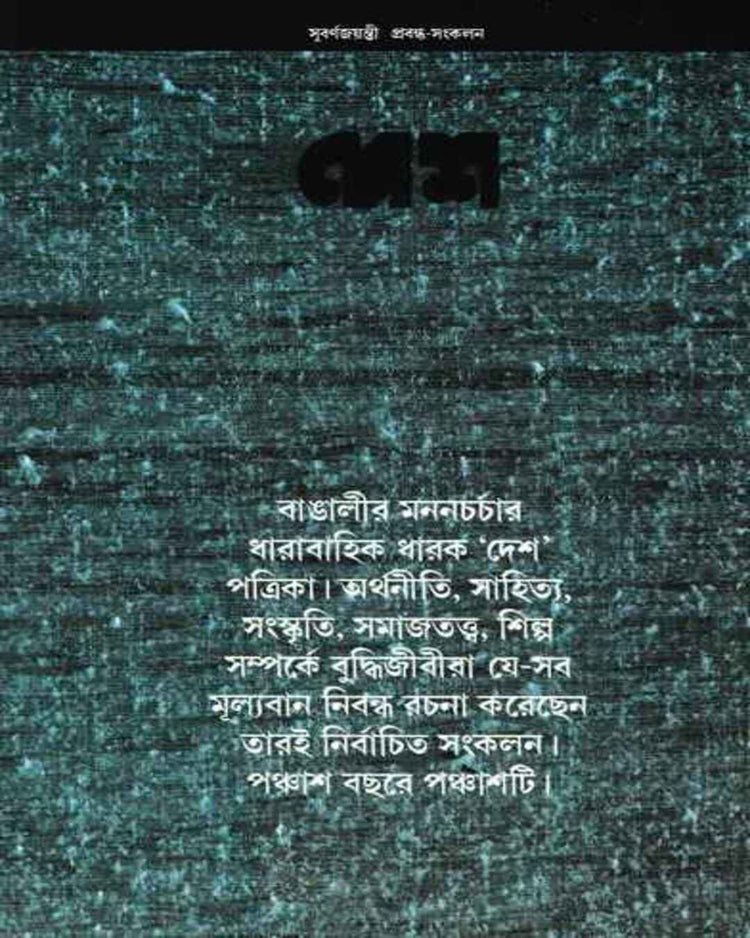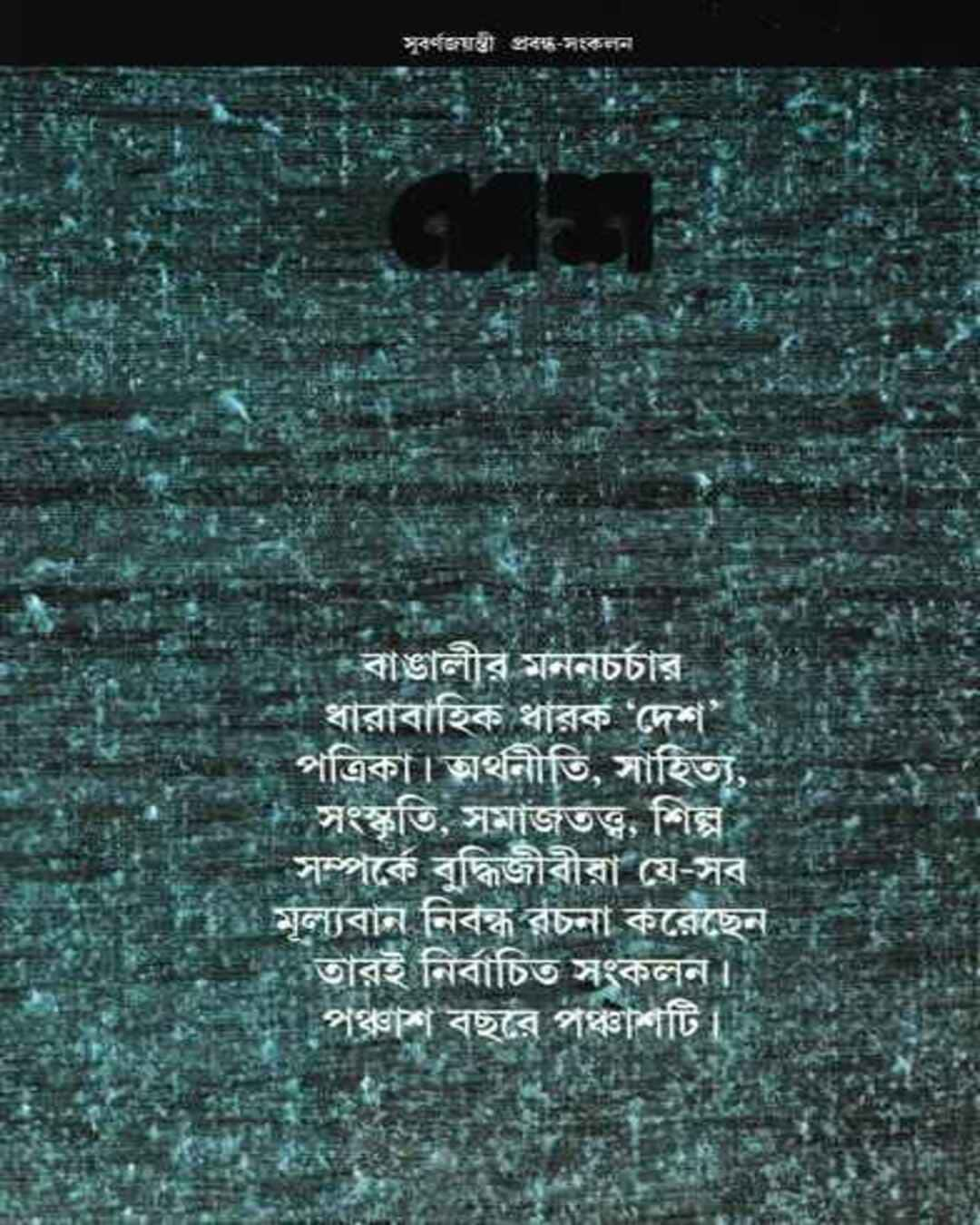
Desh Subarna Jayanti Prabandha Sangkalan by Sagarmay Ghosh
Desh Subarna Jayanti Prabandha Sangkalan by Sagarmay Ghosh
SKU:O65FBM3VQTZP
ISBN13: 978-81-70666-33-2
Hardcover Bengali book | Pages: 292
Essay Young Adults and Adults
Author: Sagarmay Ghosh
Published by: Ananda Publishers
Replacement only - within 10 days
FREE SHIPPING ON OR OVER ₹300
Low stock
Who hasn’t written an essay for Desh magazine? Almost every intellectual once considered a bright star in the vast sky of thought and ideas, or still regarded as one today, has been a writer for Desh. Some were scientists, others were interpreters of political ideologies. Some were literary critics, while others were journalists. Some were economists, some were analysts of the fine arts. Some were rural organizers, some were scholars of music theory. Some were historians, some were anthropologists. Some were medical professionals, and some were professors of philosophy. From Prasanna Chandra Roy, Bidhushikhar Shastri, Rajshekhar Bose, Nagendraprasad Sarvadhikari, Sunitikumar Chattopadhyay, Atulchandra Gupta, Kudrat E Khuda, Nandalal Basu, Promothanath Bandopadhyay, Nirmalkumar Basu, Girindrashekhar Basu, Niharranjan Roy, Jibanananda Das, Charuchandra Bhattacharya, Kshitimohan Sen, Bimanbihari Majumdar, Sudhindranath Dutta, to Abu Syed Ayub - just reading these names can overwhelm us. Each one of them was a writer for Desh. This magazine became their primary platform for expressing their thoughts. Their ideas and conclusions on literature, culture, education, health, and various national issues were published in Desh.
Above all, there was Rabindranath Tagore. Many may not know that two years before his death, Rabindranath wrote an article titled Desh Nayak (The Hero of the Nation) about Subhas Chandra Bose, and that this article, which had not been published during his lifetime, was first published in Desh in 1353.
From its inception, Desh made a vow. It declared, “Desh will particularly be a paper for the public. With a focus on the oppressed and the poor, we will look at the issues of the country. We will pay special attention to how the majority of the people, the backbone of the nation, receive the identity of the present world through the Bengali language.”
Over fifty years, countless essays were published in Desh. From that vast collection, fifty essays have been selected and published in this compilation. It becomes clear upon reading this collection that Desh has never shown any slackness in fulfilling its mission. A reliable identity of both the nation and the world is reflected in these essays, alongside a dependable identity of Bengali intellectualism.
Share
* We strive to ensure the accuracy of the book information provided on our website. However, due to the limitations of available data, some details may be incorrect. This is purely unintentional, and we sincerely apologize for any inconvenience this may cause. If you identify any inaccuracies, please notify us so that we can make the necessary corrections. Thank you for your understanding and cooperation.


